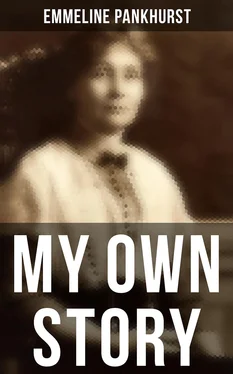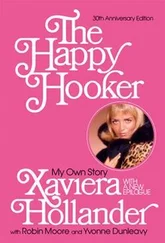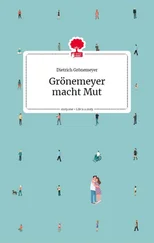But a favourable majority in the House of Commons by no means insures the success of any measure. I shall explain this at length when I come to our work of opposing candidates who have avowed themselves suffragists, a course which has greatly puzzled our American friends. The Liberal party was in power in 1884, and a great memorial was sent to the Prime Minister, the Right Honourable William E. Gladstone, asking that a women's suffrage amendment to the County Franchise Bill be submitted to the free and unbiased consideration of the House. Mr. Gladstone curtly refused, declaring that if a women's suffrage amendment should be carried, the Government would disclaim responsibility for the bill. The amendment was submitted nevertheless, but Mr. Gladstone would not allow it to be freely discussed, and he ordered Liberal members to vote against it. What we call a whip was sent out against it, a note virtually commanding party members to be on hand at a certain hour to vote against the women's amendment. Undismayed, the women tried to have an independent suffrage bill introduced, but Mr. Gladstone so arranged Parliamentary business that the bill never even came up for discussion.
I am not going to write a history of the woman suffrage movement in England prior to 1903, when the Women's Social and Political Union was organised. That history is full of repetitions of just such stories as the one I have related. Gladstone was an implacable foe of woman suffrage. He believed that women's work and politics lay in service to men's parties. One of the shrewdest acts of Mr. Gladstone's career was his disruption of the suffrage organisation in England. He accomplished this by substituting "something just as good," that something being Women's Liberal Associations. Beginning in 1881 in Bristol, these associations spread rapidly through the country and, in 1887, became a National Women's Liberal Federation. The promise of the Federation was that by allying themselves with men in party politics, women would soon earn the right to vote. The avidity with which the women swallowed this promise, left off working for themselves, and threw themselves into the men's work was amazing.
The Women's Liberal Federation is an organisation of women who believe in the principles of the Liberal party. (The somewhat older Primrose League is a similar organisation of women who adhere to Conservative party principles.) Neither of these organisations have woman suffrage for their object. They came into existence to uphold party ideas and to work for the election of party candidates.
I am told that women in America have recently allied themselves with political parties, believing, just as we did, that such action would break down opposition to suffrage by showing the men that women possess political ability, and that politics is work for women as well as men. Let them not be deceived. I can assure the American women that our long alliance with the great parties, our devotion to party programmes, our faithful work at elections, never advanced the suffrage cause one step. The men accepted the services of the women, but they never offered any kind of payment.
As far as I am concerned, I did not delude myself with any false hopes in the matter. I was present when the Women's Liberal Federation came into existence. Mrs. Gladstone presided, offering the meeting many consolatory words for the absence of "our great leader," Mr. Gladstone, who of course had no time to waste on a gathering of women. At Mrs. Jacob Bright's request I joined the Federation. At this stage of my development I was a member of the Fabian Society, and I had considerable faith in the permeating powers of its mild socialism. But I was already fairly convinced of the futility of trusting to political parties. Even as a child I had begun to wonder at the naïve faith of party members in the promises of their leaders. I well remember my father returning home from political meetings, his face aglow with enthusiasm. "What happened, father?" I would ask, and he would reply triumphantly, "Ah! We passed the resolution."
"Then you'll get your measure through the next session," I predicted.
"I won't say that," was the usual reply. "Things don't always move as quickly as that. But we passed the resolution."
Well, the suffragists, when they were admitted into the Women's Liberal Federation must have felt that they had passed their resolution. They settled down to work for the party and to prove that they were as capable of voting as the recently enfranchised farm labourers. Of course a few women remained loyal to suffrage. They began again on the old educational lines to work for the cause. Not one woman took counsel with herself as to how and why the agricultural labourers had won their franchise. They had won it, as a matter of fact, by burning hay-ricks, rioting, and otherwise demonstrating their strength in the only way that English politicians can understand. The threat to march a hundred thousand men to the House of Commons unless the bill was passed played its part also in securing the agricultural labourer his political freedom. But no woman suffragist noticed that. As for myself, I was too young politically to learn the lesson then. I had to go through years of public work before I acquired the experience and the wisdom to know how to wring concessions from the English Government. I had to hold public office. I had to go behind the scenes in the government schools, in the workhouses and other charitable institutions; I had to get a close-hand view of the misery and unhappiness of a man-made world, before I reached the point where I could successfully revolt against it. It was almost immediately after the collapse of the woman suffrage movement in 1884 that I entered upon this new phase of my career.
Table of Contents
In 1885, a year after the failure of the third women's suffrage bill, my husband, Dr. Pankhurst, stood as the Liberal candidate for Parliament in Rotherline, a riverside constituency of London. I went through the campaign with him, speaking and canvassing to the best of my ability. Dr. Pankhurst was a popular candidate, and unquestionably would have been returned but for the opposition of the Home-Rulers. Parnell was in command, and his settled policy was opposition to all Government candidates. So, in spite of the fact that Dr. Pankhurst was a staunch upholder of home rule, the Parnell forces were solidly opposed to him, and he was defeated. I remember expressing considerable indignation, but my husband pointed out to me that Parnell's policy was absolutely right. With his small party he could never hope to win home rule from a hostile majority, but by constant obstruction he could in time wear out the Government, and force it to surrender. That was a valuable political lesson, one that years later I was destined to put into practice.
The following year found us living in London, and, as usual, interesting ourselves with labour matters and other social movements. This year was memorable for a great strike of women working in the Bryant and May match factories. I threw myself into this strike with enthusiasm, working with the girls and with some women of prominence, among these the celebrated Mrs. Annie Besant. The strike was a successful one, the girls winning substantial improvements in their working conditions.
It was a time of tremendous unrest, of labour agitations, of strikes and lockouts. It was a time also when a most stupid reactionary spirit seemed to take possession of the Government and the authorities. The Salvation Army, the Socialists, the trade-unionists—in fact, all bodies holding outdoor meetings—were made special objects of attack. As a protest against this policy a Law and Liberty League was formed in London, and an immense Free Speech meeting was held in Trafalgar Square, John Burns and Cunningham Graham being the principal speakers. I was present at this meeting, which resulted in a bloody riot between the police and the populace. The Trafalgar Square Riot is historic, and to it Mr. John Burns owes, in large part, his subsequent rise to political eminence. Both John Burns and Cunningham Graham served prison sentences for the part they played in the riot, but they gained fame, and they did much to establish the right of free speech for English men. English women are still contending for that right.
Читать дальше












